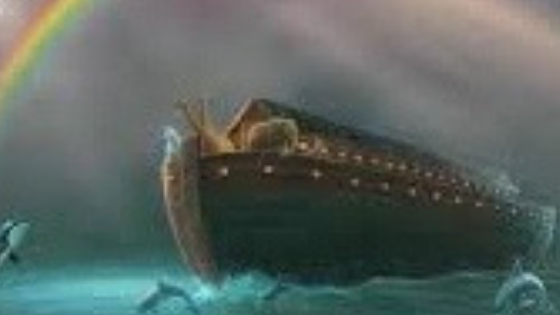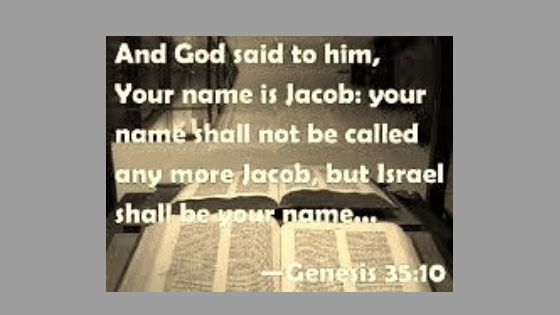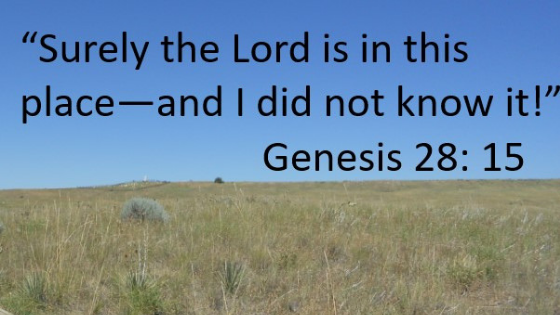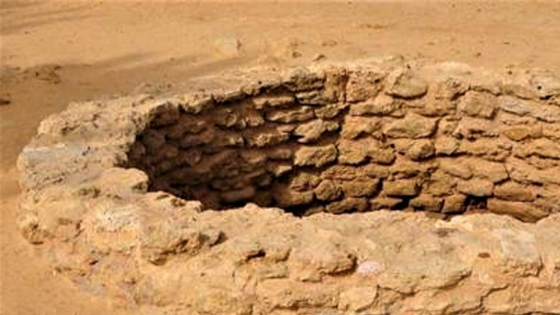Shabbat Table Talk
Parashat Noach– Erev Shabbat 12th October 2018
Week of 7th- 13th October 2018
Torah portion: Genesis 6:9-11:32 Haftarah: Isaiah 54:1-55:5
Download
 Noah is described as righteous [tzaddik] and blameless (tamim) amongst his generation (6:9), but this does not necessarily indicate that he is one whose example should be followed (not unlike a number of the characters we meet in Genesis). Hassidic commentator Levi Yitshak (Green, p. 90) describes Noah as a “failed tsaddik”, who “misjudged his own abilities [to overturn, or at least question the decree of the divine to destroy humanity] and therefore did not act to save his generation from the flood.” Further, Morris Adler (in Plaut, 80) notes that Noah “lacked compassion” and thus failed to show “solicitude”, “tenderness”, or “regret” in regard to the lives that would be lost in the deluge that God was to send upon the world.
Noah is described as righteous [tzaddik] and blameless (tamim) amongst his generation (6:9), but this does not necessarily indicate that he is one whose example should be followed (not unlike a number of the characters we meet in Genesis). Hassidic commentator Levi Yitshak (Green, p. 90) describes Noah as a “failed tsaddik”, who “misjudged his own abilities [to overturn, or at least question the decree of the divine to destroy humanity] and therefore did not act to save his generation from the flood.” Further, Morris Adler (in Plaut, 80) notes that Noah “lacked compassion” and thus failed to show “solicitude”, “tenderness”, or “regret” in regard to the lives that would be lost in the deluge that God was to send upon the world.
Others (Sacks, Kindle 826-832) compare Noah to Abraham, with the former failing to reach the heights of the later in terms of character, action and capacity to challenge the divine decree that all should be punished, save for Noah and his family. Sacks notes: “Abraham who challenged heaven itself in words unrivalled in the history of the human encounter with God: ‘Shall the Judge of all the earth not do justice?’ (18:25).” Would Abraham have saved the world? One will never know the answer to this, but it is not out of the question that Abraham would have at least raised his voice in defence of those facing the wrath of God.
Editor of the Earth Bible, Norman Habel takes all of this one step further in seeking to extend the range of Abraham’s culpability to his incapacity to recognise the place of the earth and all of its creatures in this drama. Habel (Kindle 560) notes: “the forces of divine destruction reach beyond the culprits and include the innocent: God explicitly plans to destroy all these corrupted creatures ‘along with Earth’ [cf. 6:13].” Here, Habel is not reserving his criticism for the mortal Noah, but also for the Divine, though this is not without precedent (see Abraham above).
One might doubt the capacity of the biblical author to approach the story of the flood through a worldview cognisant with that of integral ecology, but Habel’s point is a valid one and impels one to explore the relevance of this tale for our world today. Plaut (p. 73) also notes that contemporary readers are not likely to read this narrative literally, but rather to see it as an exploration of God’s “moral judgement” on the actions of humanity. Plaut writes:
In considering the story as a homily on the consequences of human corruption, lawlessness, and violence, we can affirm that they do bring on the judgment of God. We may experience it in social and moral conditions, or in nature’s physical realm (as in our pollution of the atmosphere and water, or our disturbance of the ecological balance). An offense against this balance is an offense against God (who guarantees life and its laws), which may occasion dire and unforeseen consequences.
Questions for Reflection: In the light of the crises facing Earth, our common home, and all its creatures will we be judged as Noah or Abraham by future generations?
Bibliography: Green, Arthur. Speaking Torah, Vol. 1: Spiritual Teachings from around the Maggid’s Table (Woodstock, VT: Jewish Lights, 2013); Habel, Norman. An Inconvenient Text: Is a Green Reading of the Bible Possible? (Adelaide: AFT Press, 2009); W. Gunther Plaut and David E. Stein, eds., The Torah: A Modern Commentary, Revised; (New York: Union for Reform Judaism, 2006); Sacks, Jonathan. Genesis: The Book of Beginnings (London, Maggid Books & The Orthodox Union, 2009).
This week’s teaching commentary is by
Mark David Walsh, B.A. (Ed.), B. Th., Grad. Dip. R.E., M.R.E., Melbourne, Australia,
BK Alumnus, 2001, ‘02, ’04, ‘13.
markdavidwalsh@gmail.com
[Copyright © 2018]
.………………………………………………
PLEASE NOTE: The weekly Parashah commentaries represent the research and creative thought of their authors, and are meant to stimulate deeper thinking about the meaning of the Scriptures. While they draw upon the study methods and sources employed by the Bat Kol Institute, the views and conclusions expressed in these commentaries are solely those of their authors, and do not necessarily represent the views of Bat Kol. The commentaries, along with all materials published on the Bat Kol website, are copyrighted by the writers, and are made available for personal and group study, and local church purposes. Permission needed for other purposes. Questions, comments and feedback are always welcome.
…………………………………………………
Bat Kol Institute for Jewish Studies, Jerusalem
~~1983-2018~~
“Christians Studying the Bible within its Jewish milieu, using Jewish Sources.”
Website: www.batkol.info; Parashah Admin: gill@batkol.info



